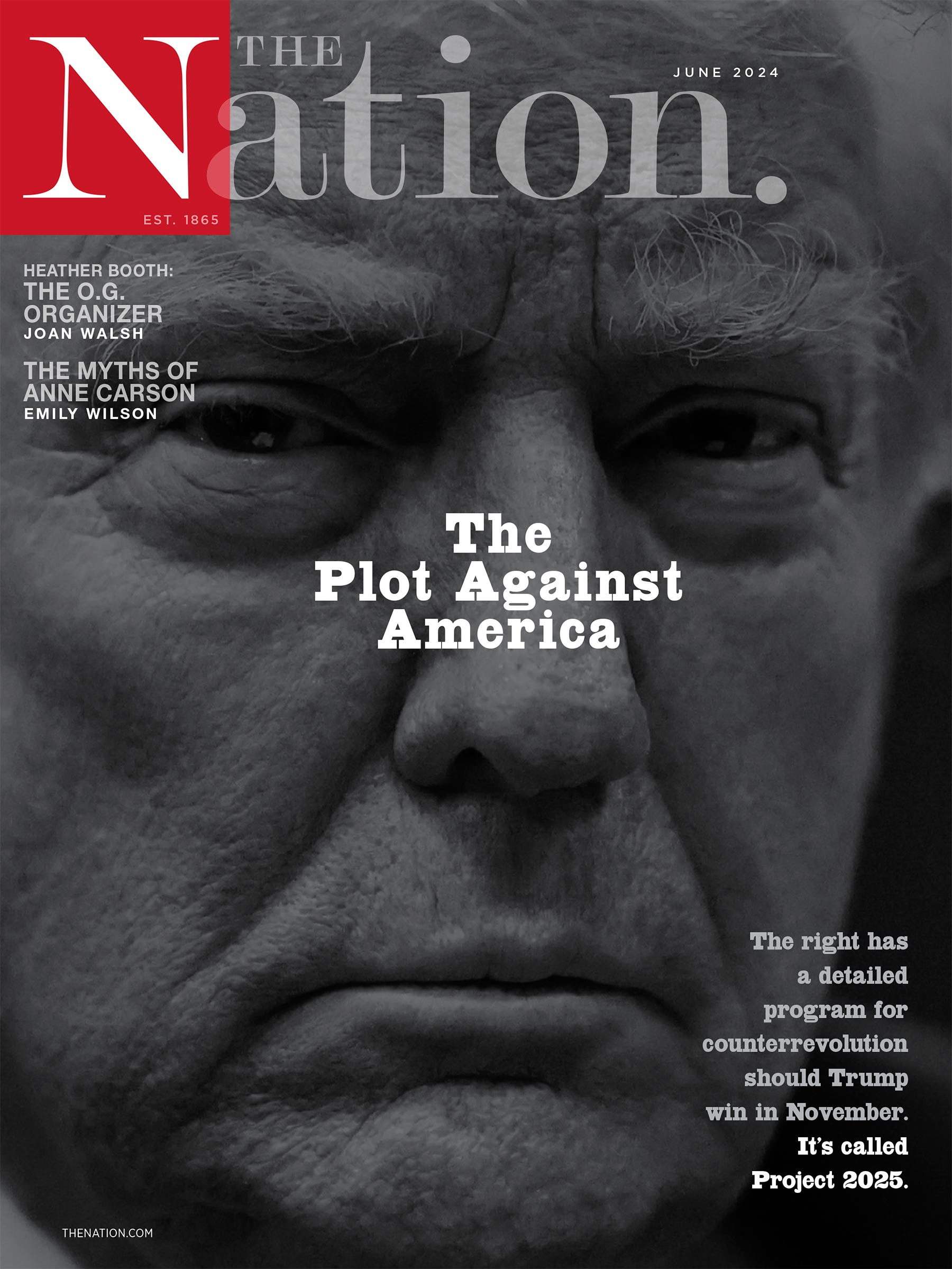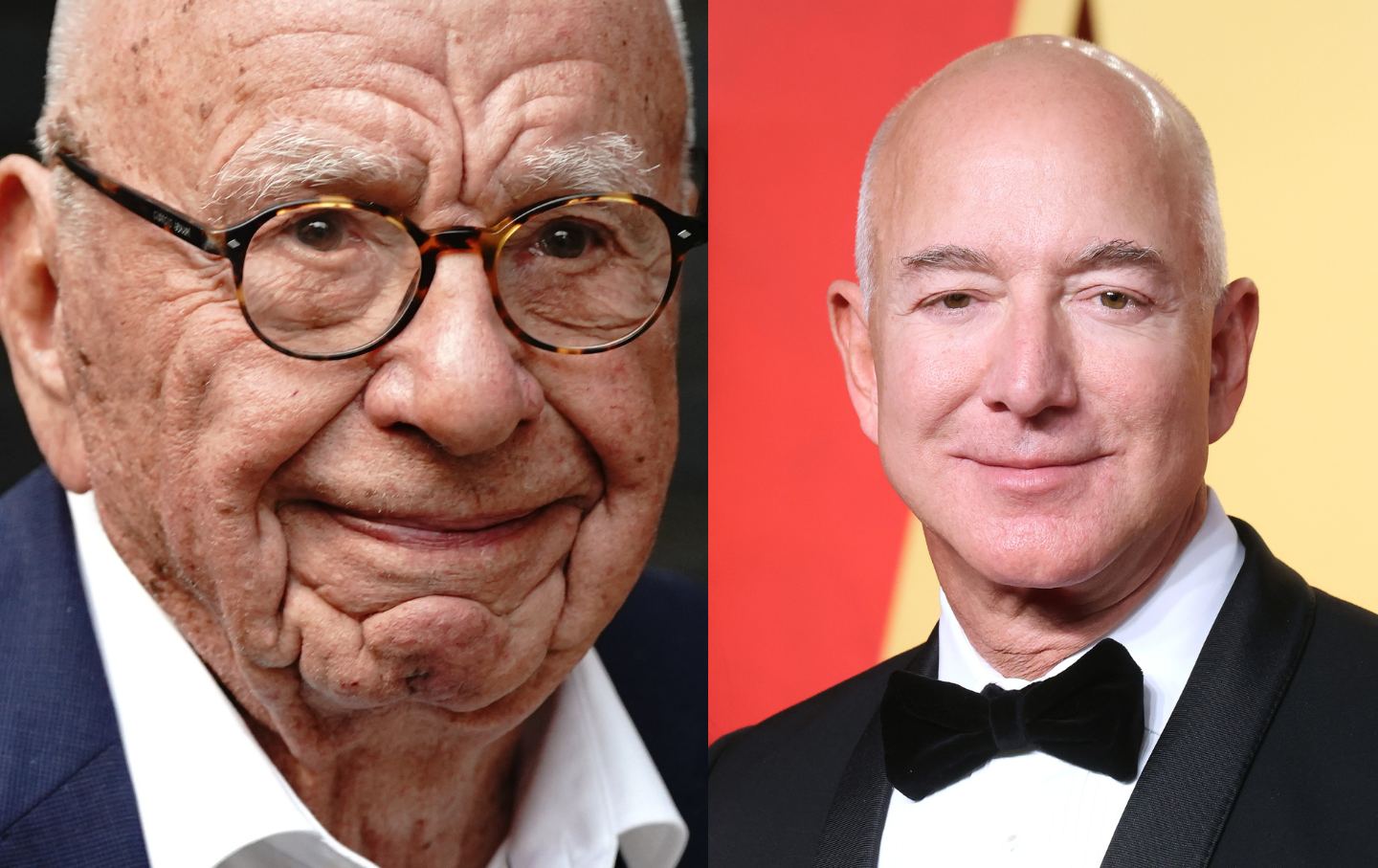The Washington Post is now run by a master of squalid tabloid journalism.
For ordinary people, tabloid journalism is often just a source of tawdry diversion. But for political and business elites, control over gossip can be a source of real power. One of the benefits of Donald Trump’s recent criminal court case, which earned him 34 convictions of falsifying business records, is that it illuminated the former president’s dealings in the murky world of tabloid blackmail. The testimony of former National Enquirer publisher David Pecker, an aptly named sleaze specialist, confirmed the earlier reporting of journalist Ronan Farrow that the scandal sheet engaged in the practice of catch-and-kill, gathering dirt on figures such as Trump with a view toward suppression rather than reporting.
Keeping secrets is a good way to build alliances, and Trump’s concordat with The National Enquirer was serious enough that the tabloid helped him by going after his political foes Hillary Clinton and Ted Cruz. In the 2016 presidential primaries, The Enquirer even suggested, hilariously—but, it must be acknowledged, falsely—that Cruz’s father might have played a role in the assassination of John F. Kennedy. Pecker’s newspaper went all out for Trump because his victory meant it had an invaluable asset: a president indebted to it for keeping his secret.
Still, when it comes to running a journalistic protection racket, David Pecker is small potatoes compared to the true transatlantic shogun of this dark art, press baron Rupert Murdoch. The Australian-born tycoon’s holdings are vast, ranging from Fox News and tabloid fare (the New York Post in the United States and The Sun in England) to quality broadsheets that aspire to be the voice of respectable conservativism (The Wall Street Journal and its British counterparts The Times and The Sunday Times). These varied assets allow Murdoch a unique audience that extends across economic lines. He can reach both the masses and the upper classes.
Behind this public influence lies a more covert but no less real source of power. As parliamentary hearings in the United Kingdom in 2011 made clear, for decades journalists at Murdoch’s British newspapers—notably The News of the World but also including The Sunday Times—engaged in illegal and wildly unethical practices (including phone hacking and bribery of police) in order to gather news stories..
Current Issue

The Murdoch phone-hacking scandal was never satisfactorily resolved: The profitable News of the World was shuttered, and there were a few high-profile resignations (notably, in 2011, of Rebekah Brooks, chief executive of Murdoch’s umbrella company News International). But since Murdoch’s larger empire survived unscathed, these were symbolic acts of contrition. (In fact, Brooks herself returned in 2015 as CEO of News UK, the newly minted name of News International).
The lack of accountability in the News International scandal can also be seen by the fact that two prominent participants in Murdoch’s dirty deeds are now taking the helm of one of the crown jewels of American journalism, The Washington Post. Will Lewis is the paper’s new publisher and Robert Winnett has been named as the incoming editor. The two men are longtime accomplices, having worked together at The Sunday Times.
On Saturday, The New York Times reported, “The publisher and the incoming editor of The Washington Post, when they worked as journalists in London two decades ago, used fraudulently obtained phone and company records in newspaper articles, according to a former colleague, a published account of a private investigator and an analysis of newspaper archives.”
One particularly disturbing aspect of this report is that in the past Lewis has been disingenuous about his record, falsely maintaining that his only involvement with the scandal was as a reformer trying to clean up The Sunday Times. Lately, however, he’s been acting more like a Nixon-style politician caught in a scandal, opting to stonewall and deceive rather than come clean.
Addressing accusations that he and Winnett paid a source $120,000 for information in a story about a British government scandal, Lewis told journalists at The Washington Post, “I agreed to put money in escrow for legal protections” of the source. According to The New York Times, this is denied by the security consultant who handled the story, who bluntly asserts, “It was not an escrow account. I held it and I released it when and how I thought it was needed.”
On June 7, National Public Radio reporter David Folkenflik reported that Lewis “repeatedly—and heatedly—offered to give me an exclusive interview about the Post’s future, as long as I dropped” a story about his involvement in the phone-hacking scandal.
Outlets such as The New York Times and NPR are doing excellent reporting on the Lewis and Winnett scandals, but they remain narrowly focused on the ethical lapses of employees rather than the real story, which is the political corruption of employers. There is a relatively easy answer to the question, “Are Lewis and Winnett fit to run a news organization?” The answer is no, these men are not. They are weaselly scoundrels.
The more important question, however, is why powerful media bosses—first Rupert Murdoch and now Washington Post owner Jeff Bezos—are so eager to employ unscrupulous knaves such as Lewis and Winnett.
Writing in The Nation in 2011 during the height of parliamentary investigation into News International, D.D. Guttenplan noted: “Through his journalists and gossip columnists and the network of former and current police officers and law enforcement officials on his payroll, Rupert Murdoch has been operating what amounts to a private intelligence service. And the threat of personal exposure—on the front page of the Sun or Page Six in the Post—gives News Corporation a kind of leverage over inquisitive regulators or troublesome politicians wielded by no other company on earth.”
This is the crucial, but oft-ignored, political and economic context for understanding why Murdoch and Bezos might prize journalistic hogs good at rooting out gossip that is even more valuable than truffles. As the founder of Amazon, Bezos is ranked among the very wealthiest men in the world. After purchasing the Post in 2013 for what was, for him, sofa change ($250 million), Bezos indulged in the typical civic self-congratulation of wealthy media owners (“Democracy Dies in Darkness”).
Popular
“swipe left below to view more authors”Swipe →
But even for someone worth upwards of $200 billion, self-praise can get tiresome. The Post has been losing not just money (which Bezos can afford) but also subscribers and, arguably, influence. If the old business model is dying, a new one might have appeal. As the owner of a tech giant, Bezos already traffics in information on a vast scale. Through Amazon’s selling of cloud security services to the Pentagon, Bezos has a disturbing access to government secrets. Think of what a plutocrat with data-mining sources both at Amazon and the Pentagon could do with the services of men like Lewis and Winnett.
The Pecker/Murdoch model of leveraging specific gossip for political clout suggests Bezos may be aiming at a new way of profiting from the Post. Especially with Amazon increasingly under political attack and facing union organizing, Bezos has ample reason for wanting a weapon he can wield against his foes.
The scandal over the new publisher and editor of The Washington Post is about much more than a few miscreant hacks. One Rupert Murdoch was bad enough, but there is good reason to fear that Jeff Bezos now wants to be a younger—and much richer—Murdoch clone.
Dear reader,
I hope you enjoyed the article you just read. It’s just one of the many deeply reported and boundary-pushing stories we publish every day at The Nation. In a time of continued erosion of our fundamental rights and urgent global struggles for peace, independent journalism is now more vital than ever.
As a Nation reader, you are likely an engaged progressive who is passionate about bold ideas. I know I can count on you to help sustain our mission-driven journalism.
This month, we’re kicking off an ambitious Summer Fundraising Campaign with the goal of raising $15,000. With your support, we can continue to produce the hard-hitting journalism you rely on to cut through the noise of conservative, corporate media. Please, donate today.
A better world is out there—and we need your support to reach it.
Onwards,
Katrina vanden Heuvel
Editorial Director and Publisher, The Nation

More from The Nation

This is the only possible conclusion after their decision striking down the federal ban on bump stocks.
Elie Mystal

Multiple harassment allegations illuminate why the tech mogul has embraced Trumpism.
Jeet Heer

The outcome is a win for abortion rights, but the court left open the possibility of future challenges to the FDA’s regulation of mifepristone.
Aziza Ahmed

The housing crisis is the logical outcome of real estate speculation and expanding unemployment—not an inevitable fact of life.
Column
/
Adolph Reed Jr.


